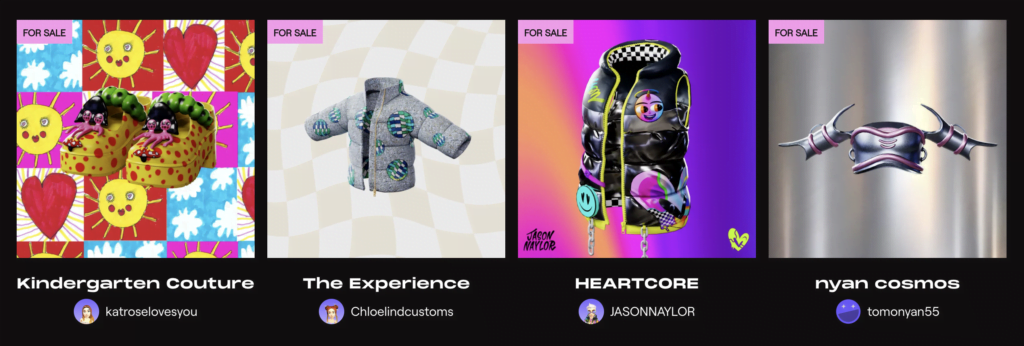Even though we have similar visions of the core values of the future metaverses, such as decentralization and censorship resistance, we may have distinct notions on how to implement those core values. We may also differ in the way to reflect our digital identities. Flexible metaverse tools can support us along the way.
The following tools empower Web3 users by providing the foundation for building metaverse experiences.
#1 Genies: avatar creation
As an avatar-creation ecosystem, Genies provides a tool – Cut N’ Mix – that enables users to create and edit fashion items for their avatars. Genies also allow designers to showcase and sell their works in the warehouse marketplace. They can pick from a wide range of species and build a fashion line.
The company has official deals with Universal Music Group and Warner Music group and owns 99% of the celebrity avatar market. Prior to giving agency to individual creators through its avatar-building tools, the team of Genies created digital avatars for the celebrities Justin Bieber, Cardi B, and J Balvin.

Genies received $150M in a series C round led by Silver Lake in April 2022. The Los Angeles-based company has over 150 employees and was founded by Akash Nigam.
#2 Light: metaverse explorer
Built on the decentralized identity protocol CyberConnect, Light equips its users with the tools to explore metaverse interactions conveniently in one place. They can construct a metaverse timeline displaying NFTs, POAPs, the latest DAO activities, and DeFi applications.
Light also works as a social graph. Users can follow others and get followed on the blockchain, as well as display NFTs and Web3 credentials on their profile boards. It’s possible to earn governance token LIGHT for securing the network.
#3 Webaverse: open metaverse builder
An open metaverse enables interoperable shared experiences that are governed and owned by their creators and not by central entities. Some tools like Webaverse strive to bridge virtual worlds so that the future internet becomes a web of interconnected, open metaverses.

Webaverse metaverse engine provides a set of open standards so that developers can build their own virtual experiences on top of them. The team developed their own metaverse MMO game – Upstreet – leveraging the infrastructure of Webaverse. It also teams up with other creators for exclusive NFT drops to generate 3D avatars and build custom worlds for those partners. As a result, the owners of partner NFTs use their assets in tangible metaverse experiences.
#4 VRSpace: virtual reality builder
VRSpace can be used on any WebXR-enabled browser for creating augmented and virtual reality experiences.
The world builder provides a list of avatars you can choose from. You can also create custom avatars. You can use any authoring tool that exports glTF to build a virtual world with VRSpace, such as Blender, Unity, and Unreal. The worlds constructed by VRSpace are multi-user, but there’s a limit on the maximum number which you can set in configuration files.
#5 Mojito: white label Web3 solutions
Mojito develops services and software for enterprise use cases. Through the “Merchant of Record“ service, it’s possible to oversee fiat and crypto payments and manage tax, compliance, and customer support.
Using Mojito, companies can launch NFT drops, marketplaces, and art galleries on their own branded platforms. The leading art gallery Pace built its NFT gallery Pace Verso using Mojito, for example. It’s also the development tool behind the world-renowned auction house Sotheby’s metaverse platform. Mojito has been supporting it since 2021.
The Mojito team worked with and developed solutions for many other well-known brands, as well. Lyrical Lemonade benefited from Mojito’s service in order to offer token-gated membership experiences in the context of the Carton collection. Milwaukee Bucks picked Mojito as a strategic partner for giving away NFT access passes to its fans in their Deer District hub.
Author

Nagi An is a content writer who is passionate about NFTs, web3, DAOs, and DeFi. She's covers a variety of topics about NFT fundamentals.




